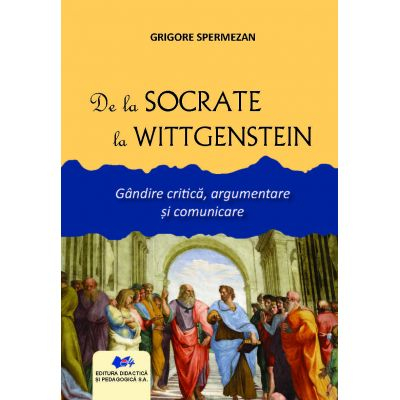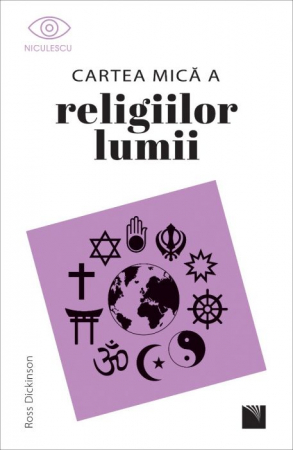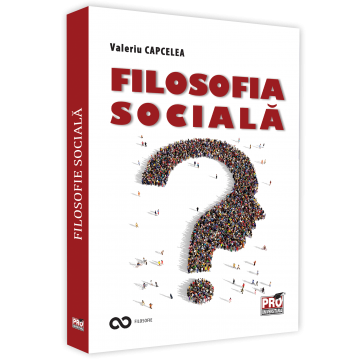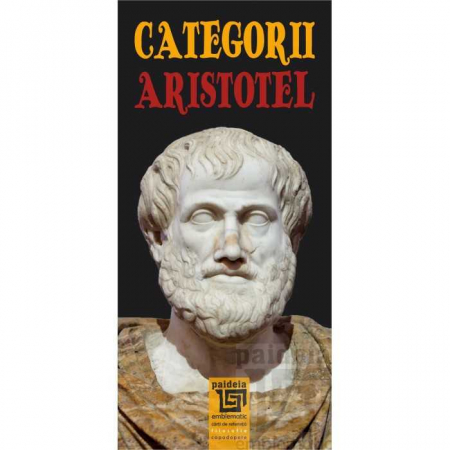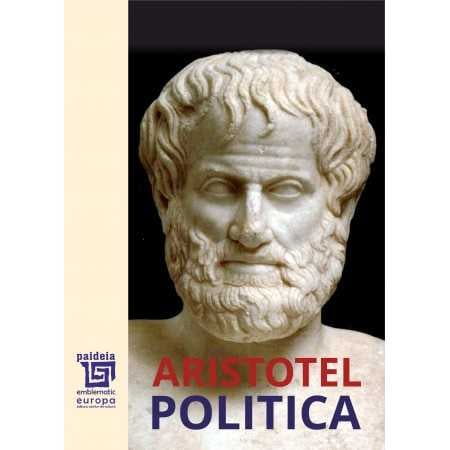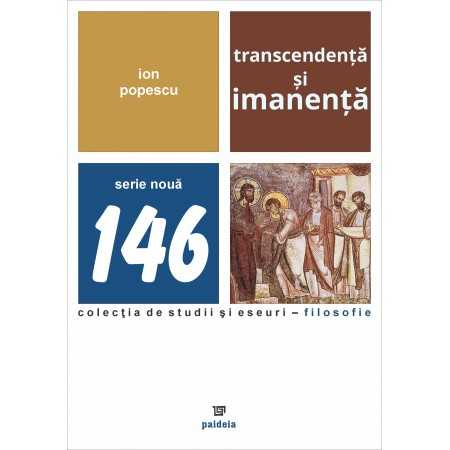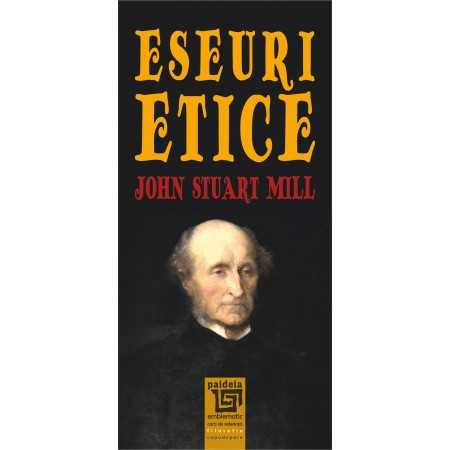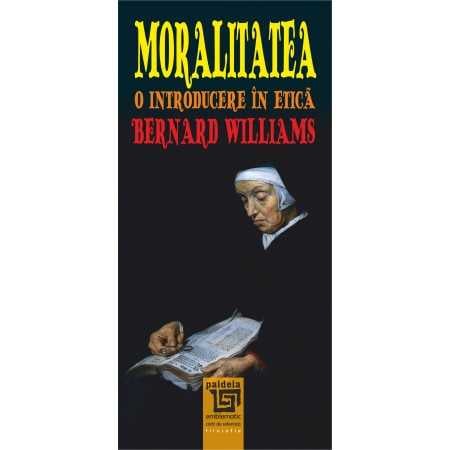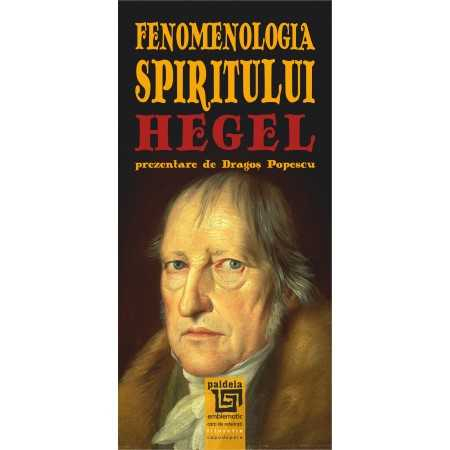Manuscript proposals: [email protected] / 0745 204 115 //// Tracking orders Individuals / Sales: 0745 200 357 / Orders Legal entities: 0721 722 783
Publisher: Editura Universitară
Author: Ionut Chircalan
ISBN: 978-606-28-1270-6
DOI: https://doi.org/10.5682/9786062812706
Publisher year: 2021
Edition: I
Pages: 250
Product Code:
9786062812706
Do you need help?
0745 200 357
- Description
- Download (1)
- Authors
- Content
- More details
- Reviews (0)
Without coming with the exaggerated pretension of offering the perfect guide on the way to perfection or the ideal one for the useful journey of Pateric, the present attempt of the young researcher Ionut Chircalan to draw, in the light of the wisdom of the Desert Fathers, some landmarks on the way of Christian life. laudable, and the work itself will be a useful tool for theological students, as well as for anyone who is in sincere search for the truth. It is, no doubt, a new approach to discovering the depths of the simple and gnomic advice of the Pateric Fathers, sometimes misinterpreted as simplistic, confusing, or unrealistic.
University professor Dr. Gheorghe F. Anghelescu
University professor Dr. Gheorghe F. Anghelescu
-
The spiritual ascent in the light of the Egyptian Pateric
Download
IONUT CHIRCALAN
PREFACE / 9
INTRODUCTION / 12
CLEANING / 23
1. Self-denial / 24
1.1. Non-agony / 26
1.2. Non-attachment / 36
1.3. Alienation / 40
2. Taking the Cross / 50
2.1. The need / 51
2.1.1. Rucodelia / 53
2.1.2. Ascension / 58
2.1.3. Pravila / 61
2.1.4. Vigilance / 64
2.2. Post / 69
2.2.1. Tips for beginners / 75
2.2.2. The harshness of the post / 79
2.2.3. Dismissal of the post / 85
2.2.4. Silence / 88
3. Following Christ / 99
3.1. Mercy / 102
3.1.1. Charity / 103
3.1.2. Fraternal love / 107
3.1.3. Love of God / 117
3.2. Gentleness / 119
3.2.1. Self-righteousness / 120
3.2.2. Death from the neighbor / 125
3.2.3. Judging one's neighbor / 128
3.2.4. Covering and forgiving one's neighbor's sins / 132
LIGHTING / 137
4. Healing the nature / 137
4.1. The baptism of tears / 138
4.2.1. The thought of death and the Judgment / 139
4.2.2. Fear of God / 143
4.2.3. Repentance / 145
4.2.4. Crying / 153
4.2. The spiritual war / 158
4.2.1. Temptations / 160
4.2.2. Thoughts / 164
a) Rejection of thoughts / 167
b) Deliverance from the thought of fornication / 171
4.2.3. Passions / 173
a) Self-justification and evil speech / 176
b) Anger / 177
c) Herd / 180
d) Fornication / 181
e) Vain glory / 185
4.2.4. Despair / 187
4.3. The abode of grace / 190
4.3.1. The Holy Spirit / 193
4.3.2. Listening / 197
4.3.3. Long patience / 203
4.3.4. Self-righteousness and patience of slander / 207
4.3.5. Humble thinking / 210
4.3.6. Humility / 213
5. Prayer / 216
5.1. The Use of the Holy Scriptures / 218
5.2. The attributes of true prayer / 225
5.3. The use of prayer / 229
PERFECTION / 234
6. Holiness / 235
6.1. Tabor light / 237
6.2. Discernment / 241
CONCLUSIONS / 245
BIBLIOGRAPHY / 249
INTRODUCTION / 12
CLEANING / 23
1. Self-denial / 24
1.1. Non-agony / 26
1.2. Non-attachment / 36
1.3. Alienation / 40
2. Taking the Cross / 50
2.1. The need / 51
2.1.1. Rucodelia / 53
2.1.2. Ascension / 58
2.1.3. Pravila / 61
2.1.4. Vigilance / 64
2.2. Post / 69
2.2.1. Tips for beginners / 75
2.2.2. The harshness of the post / 79
2.2.3. Dismissal of the post / 85
2.2.4. Silence / 88
3. Following Christ / 99
3.1. Mercy / 102
3.1.1. Charity / 103
3.1.2. Fraternal love / 107
3.1.3. Love of God / 117
3.2. Gentleness / 119
3.2.1. Self-righteousness / 120
3.2.2. Death from the neighbor / 125
3.2.3. Judging one's neighbor / 128
3.2.4. Covering and forgiving one's neighbor's sins / 132
LIGHTING / 137
4. Healing the nature / 137
4.1. The baptism of tears / 138
4.2.1. The thought of death and the Judgment / 139
4.2.2. Fear of God / 143
4.2.3. Repentance / 145
4.2.4. Crying / 153
4.2. The spiritual war / 158
4.2.1. Temptations / 160
4.2.2. Thoughts / 164
a) Rejection of thoughts / 167
b) Deliverance from the thought of fornication / 171
4.2.3. Passions / 173
a) Self-justification and evil speech / 176
b) Anger / 177
c) Herd / 180
d) Fornication / 181
e) Vain glory / 185
4.2.4. Despair / 187
4.3. The abode of grace / 190
4.3.1. The Holy Spirit / 193
4.3.2. Listening / 197
4.3.3. Long patience / 203
4.3.4. Self-righteousness and patience of slander / 207
4.3.5. Humble thinking / 210
4.3.6. Humility / 213
5. Prayer / 216
5.1. The Use of the Holy Scriptures / 218
5.2. The attributes of true prayer / 225
5.3. The use of prayer / 229
PERFECTION / 234
6. Holiness / 235
6.1. Tabor light / 237
6.2. Discernment / 241
CONCLUSIONS / 245
BIBLIOGRAPHY / 249
Book written in the monastic environment, by reuniting some sentences and short stories (with an older circulation, sometimes in oral form) taken from the biography of some monks (mostly men, but also women), hierarchs and lay people with holy life, Apophtegmata Patrum or Patericul it represents, in fact, an act of memory that aims to offer posterity the living example of the Christian faith, in its authentic, total dimension, without rest in relation to the message of Scripture, and especially to that of the Gospel of Christ the Savior. True suns of the constellation of saints, these people thirsting for simplicity and driven by longing for God, have been for a millennium and a half and are to this day safe guides for all who wish to deepen and know from experience the path that leads to union with God. Although many of their words inspired by the Holy Spirit were spoken in response to the insistent and legitimate request of some monks who were interested in putting into practice a personalized method for obtaining salvation, the Patericus is not exclusively addressed to the monks, but behind the sober covering. and of the exhortations, we find an extremely useful guide for every practicing Christian.
This paper aims to present in a more systematic, but also more accessible, this guiding thread on the path of salvation, which branches out and sometimes becomes invisible in the density of themes of spiritual life and in the richness of nuances it contains. Patericul in its initial, alphabetical wording. This shortcoming was tried to overcome by the Thematic Pateric and, later, by the Composite Thematic, which offered us a structure on precise subjects of apophtegms. Their documentary value is invaluable and unmatched. However, for today's man there is a need for an introductory guide in reading the vast collection, to make an overview of the general route, and then to specify from place to place, like indicators, the elements of detail on the road map leading to perfection.
Indeed, there are works that prove the familiarity of their authors with the sayings of the Desert Fathers, such as the correspondence between Saints Varsanufie († 545) and John the Prophet, a witness document of the writing of Pateric "in exile" by disciples of wise elders retired to the Holy Land, the birthplace, by the way, of the Church. The writing of Various questions and useful soul letters of Avva Dorothea of Gaza (505 565/620), the disciple of the two authors above, and the Ladder of the Divine Ascension of St. John of Sinai (579 649) are masterpieces of spiritual guidance, but in an original wording, with only occasional references to the apophtegms of the Fathers. They managed to illustrate in a coherent structure this way of salvation, also benefiting from the advantage of the personal experience of their authors, bearers of the same inspiring heavenly Spirit as of the Fathers of the desert. True works of erudition, they are, without a doubt, useful guides to perfection.
We must not omit, from this enumeration of writings related to Patericus or thematically close, the Spiritual Conversations of Saint John Casian of Dobrogea (360 435), who personally knew some of the Fathers of the desert during his stay in the desert of Egypt between 388-400 . His work is a true spiritual guide, but also as a forerunner of journalistic reports, offers the reader the freshness of the sayings of the great Fathers enriched with elements of their own experience and theological culture gained in multiple journeys to major monastic hearths and Christian cultural centers of the time. Delighted by the literary virtuosity in which these spiritual syntheses are presented to us, we understand that the author left on the background the aspect of historicity. Skillfully using the stylistic process of storytelling in the frame, Saint John Casian makes a synthesis of the apophtegms he could know, randomly attributing them to one or another of the personalities mentioned as interlocutors.
Without coming with the exaggerated pretension of offering the perfect guide on the way to perfection or the ideal one for the useful journey of Pateric, the present attempt of the young researcher Ionut Chircalan to draw, in the light of the wisdom of the Desert Fathers, some landmarks on the way of Christian life. laudable, and the work itself will be a useful tool for theological students, as well as for anyone who is in sincere search for the truth. It is undoubtedly a new approach to discovering the depths of the simple and gnomic advice of the Pateric Fathers, sometimes misinterpreted as simplistic, confusing or unrealistic.
Prof. Univ. Dr. Gheorghe F. Anghelescu
This paper aims to present in a more systematic, but also more accessible, this guiding thread on the path of salvation, which branches out and sometimes becomes invisible in the density of themes of spiritual life and in the richness of nuances it contains. Patericul in its initial, alphabetical wording. This shortcoming was tried to overcome by the Thematic Pateric and, later, by the Composite Thematic, which offered us a structure on precise subjects of apophtegms. Their documentary value is invaluable and unmatched. However, for today's man there is a need for an introductory guide in reading the vast collection, to make an overview of the general route, and then to specify from place to place, like indicators, the elements of detail on the road map leading to perfection.
Indeed, there are works that prove the familiarity of their authors with the sayings of the Desert Fathers, such as the correspondence between Saints Varsanufie († 545) and John the Prophet, a witness document of the writing of Pateric "in exile" by disciples of wise elders retired to the Holy Land, the birthplace, by the way, of the Church. The writing of Various questions and useful soul letters of Avva Dorothea of Gaza (505 565/620), the disciple of the two authors above, and the Ladder of the Divine Ascension of St. John of Sinai (579 649) are masterpieces of spiritual guidance, but in an original wording, with only occasional references to the apophtegms of the Fathers. They managed to illustrate in a coherent structure this way of salvation, also benefiting from the advantage of the personal experience of their authors, bearers of the same inspiring heavenly Spirit as of the Fathers of the desert. True works of erudition, they are, without a doubt, useful guides to perfection.
We must not omit, from this enumeration of writings related to Patericus or thematically close, the Spiritual Conversations of Saint John Casian of Dobrogea (360 435), who personally knew some of the Fathers of the desert during his stay in the desert of Egypt between 388-400 . His work is a true spiritual guide, but also as a forerunner of journalistic reports, offers the reader the freshness of the sayings of the great Fathers enriched with elements of their own experience and theological culture gained in multiple journeys to major monastic hearths and Christian cultural centers of the time. Delighted by the literary virtuosity in which these spiritual syntheses are presented to us, we understand that the author left on the background the aspect of historicity. Skillfully using the stylistic process of storytelling in the frame, Saint John Casian makes a synthesis of the apophtegms he could know, randomly attributing them to one or another of the personalities mentioned as interlocutors.
Without coming with the exaggerated pretension of offering the perfect guide on the way to perfection or the ideal one for the useful journey of Pateric, the present attempt of the young researcher Ionut Chircalan to draw, in the light of the wisdom of the Desert Fathers, some landmarks on the way of Christian life. laudable, and the work itself will be a useful tool for theological students, as well as for anyone who is in sincere search for the truth. It is undoubtedly a new approach to discovering the depths of the simple and gnomic advice of the Pateric Fathers, sometimes misinterpreted as simplistic, confusing or unrealistic.
Prof. Univ. Dr. Gheorghe F. Anghelescu
If you want to express your opinion about this product you can add a review.
write a review

6359.png)
![The spiritual ascent in the light of the Egyptian Pateric - Ionut Chircalan [1] The spiritual ascent in the light of the Egyptian Pateric - Ionut Chircalan [1]](https://gomagcdn.ro/domains/editurauniversitara.ro/files/product/large/chircalan_urcusul-duhovnicesc_bt-3113-7616.jpg)




